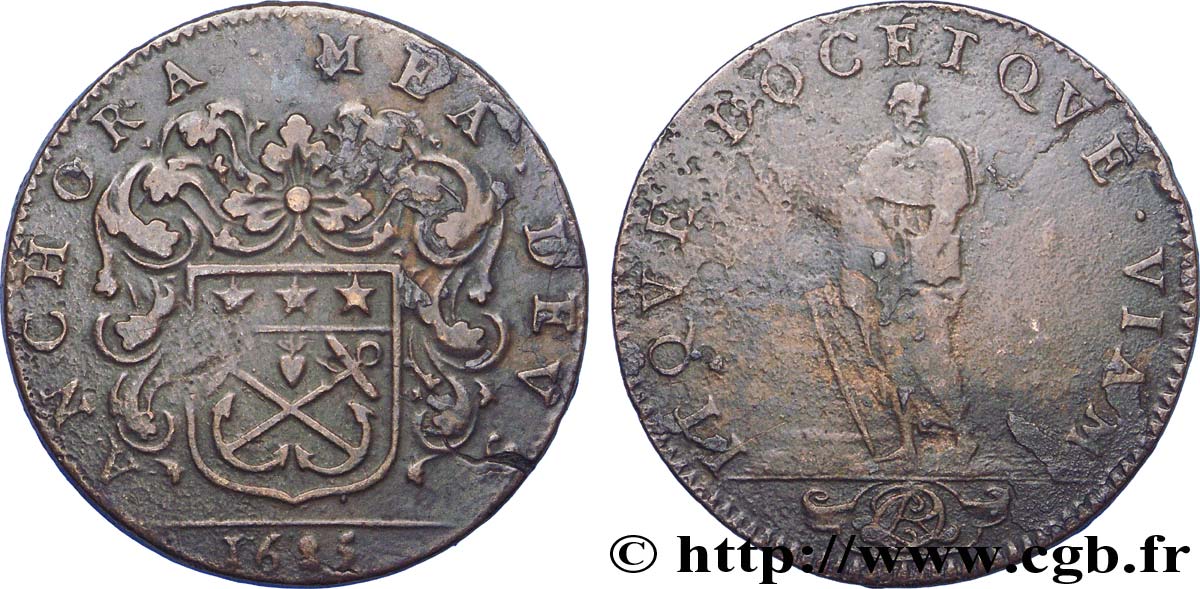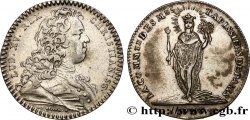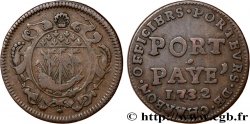fjt_015608 - CORPORATIONS Ch. de Rosnel 1685
350.00 €(Approx. 399.00$ | 294.00£)
Quantity
Add to your cart

Type : Ch. de Rosnel
Date: 1685
Metal : red copper
Orientation dies : 6 h.
Edge : lisse
Rarity : R2
Catalogue references :
Obverse
Obverse legend : ANCHORA MEA DEVS ; À L'EXERGUE : 1685.
Obverse description : Armes de Ch. de Rosnel.
Obverse translation : Dieu est mon ancre.
Reverse
Reverse legend : ITQVE DOCETQVE VIAM.
Reverse description : Saint Jacques s'appuyant sur son bourdon. A l'exergue : monogramme C D R.
Reverse translation : Il prend la route et la montre.
Commentary
En 1648 on trouve un Claude de Rosnel marchand orfèvre au Pont Au Change. En 1692, on trouve un Sieur Rosnel au Plat d'Etain" à l'entrée de la rue saint Denis qui fait grand débit de toutes sortes de Peaux , et vend des Calçons et Chaus-
sons de vray et de faux Chamois. La famille est donc manifestement de la bourgeoisie commerçante parisienne.
sons de vray et de faux Chamois. La famille est donc manifestement de la bourgeoisie commerçante parisienne.








 Report a mistake
Report a mistake Print the page
Print the page Share my selection
Share my selection Ask a question
Ask a question Consign / sell
Consign / sell
 Full data
Full data










